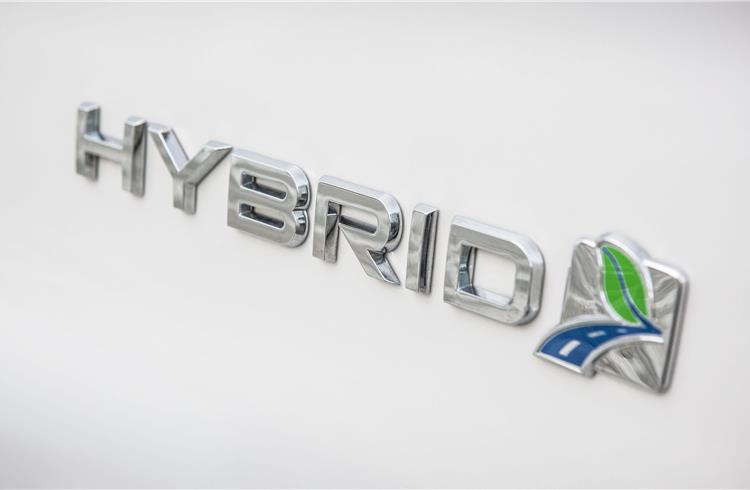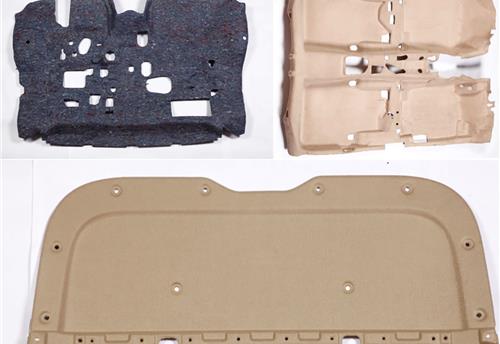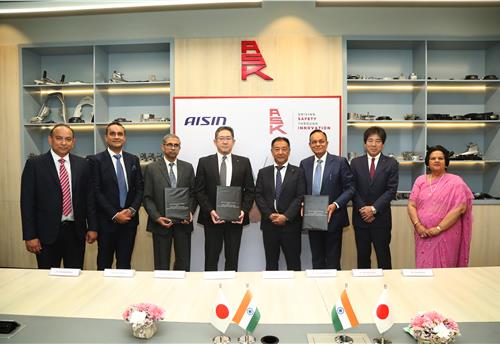Hybrid tech key aspect for India’s journey towards future mobility, NITI Aayog's VK Saraswat
Hybrid vehicles should be considered as key aspect in India's journey to future mobility, and switching to EVs from ICE vehicles needs proper infrastructure.
Hybrid vehicles should be considered as key aspect in India's journey to future mobility, and switching to EVs from ICE vehicles needs proper infrastructure and it will take some time said NITI Aayog member V K Saraswat to PTI on September 16, 2018.
According to Saraswat, the introduction of EV technology should begin with two-wheelers and three-wheelers for short-haul journeys. "There is a sequence in which activity has to go. The sequence today is that you have 100 percent system working on internal combustion engine (ICE). You are introducing a battery technology directly today. It will take time for the battery technology because it needs supporting infrastructure capacity," Saraswat told PTI.
Stating that the country could not allow ICE vehicles to continue to contribute towards emitting carbon dioxide, Saraswat said, "To reduce the emission of IC engines is to go for hybrid, means you take IC engines and electric vehicles together."
The NITI Aayog member pointed out that the hybrid vehicle technology does not require any major modification in the infrastructure of the country. He said, "That's why keep the hybrid route open, introduce the battery technology in first two-wheelers and three-wheelers, where the running at particular point in time does not exceed at 100km. So, even on a single charge it can take them to 100-150km, for which technology is available today," suggested Saraswat.
A former chief of Defence Research and Development Organisation (DRDO), Saraswat pointed out that the battery-driven system will not be competitive in terms of greenhouse gas emission as coal is still the main source for producing electricity in India and as a result the emissions would continue to be high.
Saraswat rebutted claims made by experts that cost of batteries will come down to $70 (Rs 4,422) by 2030 and it will make the adoption of EV technology cheaper and a viable option. "It's a big projection, if it (cost of battery for EV technology) even comes close to $100 (Rs 6,317) by 2030, it will be a major achievement," he asserted.
He further elaborated that battery cost will not come down as millions of cells are being produced each day, so the economies of scale is not the issue. "The issue is cost of lithium, manganese and cobalt (which are used in the battery). These three materials are going to be precious material and are not available. Because of non availability, there will be buoyancy in their cost and hence that will dictate the cost of the battery," the NITI Aayog member noted.
Saraswat also admitted that if India wants to use renewable energy for producing electricity for charging electric vehicles, the country should make a huge investment in its grid management.
RELATED ARTICLES
Uniproducts India targets 15% growth till FY2027, eyes new EV OEMs for NVH parts
The Noida-headquartered company, which is a leading manufacturer of roof liners, floor carpets, sound insulation materia...
Ford to build more EV software capability at Chennai tech hub
Ford Business Solutions India, which currently employs 12,000 personnel set to add 3,000 more; Ford, which is known to b...
ASK Automotive to set up JV with Aisin to sell aftermarket parts for cars
Ask Automotive will have 51% of the equity of the joint venture to be set up with Aisin Asia (Thailand) Company and Aisi...





 By Autocar Pro News Desk
By Autocar Pro News Desk
 17 Sep 2018
17 Sep 2018
 5970 Views
5970 Views









